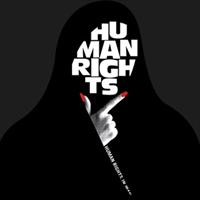Media Urged to Take Broader View in Reporting on Human Rights

Thursday, March 6, 2008
A journalists’ workshop on covering human rights issues, organised by The Commonwealth Secretariat in collaboration with the British High Commission and the US Embassy, opened in the Gambian capital, Banjul, with a call on journalists to take every opportunity to learn the skills and principles of responsibly reporting on the subject of human rights from a broad perspective.
Speaking at the opening of the 8-day training yesterday, 4 March 2008, US Ambassador to The Gambia, Mr Barry Wells, said that it is important for all media outlets to be aware of the principles of international, regional and sub-regional human rights conventions, such as the African Charter on Human and People’s Rights, and the International Convention on Civil and Political Rights.
Mr Wells said that while the media can be seen as the “thorn in the side of any government, including the American government, it is still vitally important to recognise and value the press.”
Ms Alexandra Sicotte-Levesque, a journalist and founder of Journalists for Human Rights, one of the trainers, said the course aims to give participants a broader perspective of various human rights issues on which journalists can write stories, beyond political and civil rights.
Nick Kotch, the lead trainer emphasised the importance of accuracy and getting facts right, if journalists are to report on human rights issues responsibly.
The participants are drawn from the print and broadcast media and represent both the public and private media houses in The Gambia.
Human rights has long been at the centre of the Commonwealth’s values and its practical interventions, and the Commonwealth Secretariat’s work in the field has achieved growing prominence in recent years.
The importance attached to human rights specifically is reflected in the enhanced autonomy of the Human Rights Unit (HRU) since its reconstitution in January 2002.
The Commonwealth Secretariat, through its Human Rights Unit, has the mandate to assist member countries to strengthen human rights institutions, build the capacity of officials involved in human rights issues and to assist them in ratifying international and regional human rights instruments.
“The media is one of the key institutions that have the potential of creating awareness and highlighting the good and the bad when it comes to observing human rights issues in any society—and that is why this kind of training is seen as very important,” said Alina Meyer, from the Human Rights Unit of the Secretariat.
In delivering on its mandate, the Commonwealth is guided by relevant sections of the 1991 Commonwealth Harare Declaration which states in part: “we believe in the liberty of the individual under the law, in equal rights for all citizens regardless of gender, race, colour, creed or political belief, and in the individual’s inalienable right to participate by means of free and democratic political processes in framing the society in which he or she lives.”
It is envisaged that this training will act as a model for future related training programmes in other Commonwealth countries.
Speaking at the opening of the 8-day training yesterday, 4 March 2008, US Ambassador to The Gambia, Mr Barry Wells, said that it is important for all media outlets to be aware of the principles of international, regional and sub-regional human rights conventions, such as the African Charter on Human and People’s Rights, and the International Convention on Civil and Political Rights.
Mr Wells said that while the media can be seen as the “thorn in the side of any government, including the American government, it is still vitally important to recognise and value the press.”
Ms Alexandra Sicotte-Levesque, a journalist and founder of Journalists for Human Rights, one of the trainers, said the course aims to give participants a broader perspective of various human rights issues on which journalists can write stories, beyond political and civil rights.
Nick Kotch, the lead trainer emphasised the importance of accuracy and getting facts right, if journalists are to report on human rights issues responsibly.
The participants are drawn from the print and broadcast media and represent both the public and private media houses in The Gambia.
Human rights has long been at the centre of the Commonwealth’s values and its practical interventions, and the Commonwealth Secretariat’s work in the field has achieved growing prominence in recent years.
The importance attached to human rights specifically is reflected in the enhanced autonomy of the Human Rights Unit (HRU) since its reconstitution in January 2002.
The Commonwealth Secretariat, through its Human Rights Unit, has the mandate to assist member countries to strengthen human rights institutions, build the capacity of officials involved in human rights issues and to assist them in ratifying international and regional human rights instruments.
“The media is one of the key institutions that have the potential of creating awareness and highlighting the good and the bad when it comes to observing human rights issues in any society—and that is why this kind of training is seen as very important,” said Alina Meyer, from the Human Rights Unit of the Secretariat.
In delivering on its mandate, the Commonwealth is guided by relevant sections of the 1991 Commonwealth Harare Declaration which states in part: “we believe in the liberty of the individual under the law, in equal rights for all citizens regardless of gender, race, colour, creed or political belief, and in the individual’s inalienable right to participate by means of free and democratic political processes in framing the society in which he or she lives.”
It is envisaged that this training will act as a model for future related training programmes in other Commonwealth countries.
Source: The Point
 Back and Next - Back and Next
Back and Next - Back and Next See Also - See Also
See Also - See Also